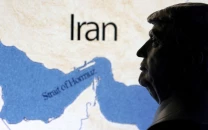Pakistan outdoes India in Tobacco control: WHO
Report reveals Pakistan, Bangladesh and Sri Lanka have been more successful in curbing deaths caused by tobacco

PHOTO: REUTERS
The report released Tuesday, revealed that in Pakistan and Bangladesh cigarettes became less affordable between 2008 and 2014, while India remained one of the few countries where more people can afford to buy cigarettes.
Bangladesh and Sri Lanka are one of the few countries that have raised taxes on the retail price of a single pack of cigarette with Bangladesh being one of the only seven countries that have raised taxes to over 75 per cent, whereas in India the tax rate is just 60 per cent.
Read:Seminar on tobacco: ‘One person dies every eight seconds’
According to the WHO report taxing is the most effective method to discourage smoking but majority of Indian tobacco industry remains untaxed.
“In India, taxes are levied on bidis made by larger producers but not by small producers; as a result, bidi production in India has largely remained a small-scale cottage industry,” the 2015 WHO report stated.
“The governments need to tax all tobacco products in a manner that people do not opt out of one expensive product to a less expensive one. Currently, governments are levying much less tax on smokeless tobacco and regulations do not cover all aspects of smokeless tobacco, which is the main cause of oral cancer in the region,” the report further said.
Read:No to tobacco: ‘Survey findings a story of govt’s tobacco control failure’
Pakistan now follows a two-tier specific cigarette excise tax system which replaced a more intricate three-tier tax system in 2013. The WHO report also observed the common man’s purchasing power when determining the affordability of cigarettes in the region. Cigarettes are less affordable in Pakistan, Turkey, Poland, Russia, Ukraine and Brazil and more affordable in India, China, Indonesia and Vietnam.
Read:Smoke-free capital: Traffic police campaign begins today
“Raising taxes on tobacco products is one of the most effective and cost-effective ways to reduce consumption of products that kill, while also generating substantial revenue,” WHO Director-General Dr Margaret Chan said. “I encourage all governments to look at the evidence, not the industry’s arguments, and adopt one of the best win-win policy options available for health.”
Tobacco causes six million deaths in the world every year and about 20 per cent of those occur in the South East Asia region. Earlier, studies have revealed that nearly one million Indians die of Tobacco consumption every year and the number is increasing.
The article originally appeared on Deccan Herald



















COMMENTS
Comments are moderated and generally will be posted if they are on-topic and not abusive.
For more information, please see our Comments FAQ